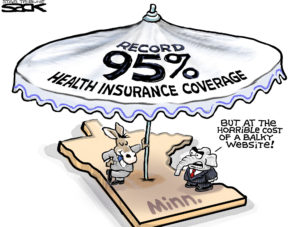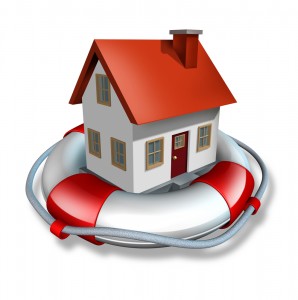March 9, 2018
 In this time of rising medical inflation, investing in a medical insurance policy has become the need of the hour. The benefits of a health care plan indeed out weigh the cost. Many individuals, therefore, invest in a health care policy to enjoy financial protection in case of a medical emergency.
In this time of rising medical inflation, investing in a medical insurance policy has become the need of the hour. The benefits of a health care plan indeed out weigh the cost. Many individuals, therefore, invest in a health care policy to enjoy financial protection in case of a medical emergency.
You may either opt for a reimbursement of the medical expenses incurred by you, or you may file a cashless claim. Though the procedure for filing a claim is quick and hassle-free, sometimes it may get rejected.
Following are six major reasons why your health insurance claim may be denied.
1. Providing inaccurate or incomplete details
One of the reasons for denial of the claim is a failure to furnish complete or accurate details. These details may pertain to your health condition, pre-existing conditions, or nature of employment, among others. Since these factors are crucial in helping the insurance provider to determine your eligibility and premium, they may deny the claim if they find out that crucial information has been withheld or if facts have been misrepresented.
2. Seeking claims for exclusions
Most medical health insurance plans come with a list of diseases and ailments that are beyond the scope of coverage. Making a claim for any conditions or ailments in the exclusion list will fail to qualify for coverage and hence the claim will be rejected.
3. Making a claim during the waiting period
Waiting period refers to the specified time frame that you must wait for, before beginning to enjoy benefits of the policy. This is the period during which pre-specified illnesses are not covered by your policy. Hence, making any health insurance claim during the waiting period will result in it being rejected.
4. Admission to a non-network hospital
Insurance companies have a network list of hospitals. In order to avail of a cashless facility, it is imperative to get admitted at any of the hospitals in the insurer’s network. The insurance provider may reject your cashless claim in an event that you are admitted to a non-network hospital. In such a case, however, you may seek reimbursement of the hospital expenses incurred by you. You may submit the original bills, medical reports, and fill the claim form while seeking reimbursement.
5. Claims made on lapsed policies
Your policy may stand lapsed in case you have failed to make premium payment before the due date. Making a claim once your policy has lapsed will mostly result in denial of the filed claims. It is, therefore, necessary to make timely payment of your medical health insurance premiums in order to enjoy uninterrupted benefits of your health policy.
6. Failure to notify the insurer within the stipulated time frame
Your medical health insurance policy states the period within which you must inform the insurance provider of your hospitalization. If the claim has not been brought to the notice of the insurer within the time frame stipulated in the terms and conditions of the policy document, the insurance claim will be rejected. You may, therefore, submit the insurance claim request within the time frame. You may also submit the original hospital bills as well as post-hospitalization expenses if any.
A medical health insurance claim denial may threaten your financial security and the ability to receive medical care. It is, therefore, necessary to identify the possible causes of rejection. Once you are well aware of the possible causes of claim denial, you may follow the guidelines to ensure that your claims are honored.
Tags:
budgeting,
Claims,
Coverage,
economy,
Financial Assistance,
Health Insurance,
Insurance policies,
investments,
Mediclaims,
money,
personal finance,
Premiums,
Returns
March 7, 2012
 Home insurance is a vital component of any home owner’s finances. However, many people still dismiss the benefits of such a policy, mainly due to the cost and the admin work involved when making a claim. As minor damages are usually dealt with and paid by the home owner independently to avoid the tedious process of making a claim, many assume that home insurance is unnecessary. However, this couldn’t be further away from the truth.
Home insurance is a vital component of any home owner’s finances. However, many people still dismiss the benefits of such a policy, mainly due to the cost and the admin work involved when making a claim. As minor damages are usually dealt with and paid by the home owner independently to avoid the tedious process of making a claim, many assume that home insurance is unnecessary. However, this couldn’t be further away from the truth.
Buying a property is already a huge investment. Couple that with the cost involved in maintaining it and you are faced with an incredibly expensive responsibility. Home insurance is designed to financially stabilise home owners and support them in the event of theft or damage. Finding a suitable and affordable home insurance quote is easier than you think. Due to the large number of providers, prices vary significantly from company to company.
Price comparison sites are particularly popular amongst insurance seekers across the country. Although these search engines are quick and easy to use, it is not advisable to accept a deal without visiting the insurance company directly first. Minor changes within the policy may occur which may mean that the cover is not specific or relevant for the home owner.
There are, however, other ways to ensure that you get a good deal:
1. Increase Security
Installing security and safety systems in and around the home will help bring premiums down. Insurance providers recognise the measures a property owner has taken to ensure they are both safe and protected. The ‘behaviours’ will be rewarded and thus monthly payments will be lowered.
2. Join Groups
Joining community groups can seriously boost the chances of receiving cheaper home insurance. Neighbourhood Watch programs are seen by insurers as a positive behavior that needs to be rewarded.
3. Review Contents
Expensive and sentimental belongings will all need to be covered by insurance to protect them against theft or damage. However, many people fail to inform insurers of changes in circumstance that can change the amount of monthly repayments. If a piece of jewellery, electronic device or appliance is no longer used or owned then providers need to be aware, otherwise they will continue to charge for those contents.
4. Increase the Deductible
The deductible in insurance is the amount of money that is needed to be paid before a claim can be made. The general theory is that the higher the deductible the lower the monthly payments. For those who decide to pay for minor repair work with their own earnings, this is ideal. In some cases, households can save up to $200 a year.
5. Combining Policies
Contacting an existing provider of insurance is a sure fire way of improving the likelihood of a discount. Most companies will reward existing customers with a substantial reduction on their policy if they combine two or more types of insurance with them. For this reason, existing providers should be the first port of call when gathering home insurance quotes.
This is a guest post by Nicola Winters on behalf of LV, a leading provider of home insurance.
Tags:
financial planning,
Home,
Home Insurance,
insurance,
Insurance policies,
Protection
December 4, 2011
 Before you can find the best life insurance quotes, you may need to reflect on what it is that you mean by best.
Before you can find the best life insurance quotes, you may need to reflect on what it is that you mean by best.
For example, are the best life insurance quotes those that are the cheapest or would you consider a policy which offered the highest lump sum pay out, to be the best?
Types of cover
While the basic principle of a lump sum payment to your family should you die remains the same, there are different types of life insurance policy available. There are also a number of ways that you may typically tailor the type you choose to match your own particular set of circumstances.
So, for example, you may opt for a policy that has:
• a lump sum payout, which decreases over time to tie in with a repayment type mortgage where the balance outstanding also decreases with each repayment you make – this is a decreasing term policy.
• a lump sum agreed at the outset of the policy and which doesn’t change over time – this is called a level term policy.
It may be worth noting that for either of these options, the monthly premium is likely to remain the same over the term of the policy.
You may also be able to combine this type of cover with critical illness insurance, which may provide a lump sum in the event that you are diagnosed with a life threatening illness.
Options
Once you have chosen the type of cover that you’d like, you may then need to choose:
• how long to you want the cover to last (the term of the policy) and this might correspond to the length of time your mortgage has to run or how long you have until you retire etc.
• the amount of cover you want (the size of the lump sum) – again, this may be tied into the amount of mortgage you have outstanding or an amount to provide your family with a bit extra once all the major bills were taken care of.
Premium prices will vary depending on the options that you select.
Tags:
best insurance,
financial planning,
Future finance planning,
insurance,
Insurance policies,
life insurance,
life insurance quotes,
personal finance,
protect your life,
save your life financially
August 27, 2011
 There’s nothing quite like a big, beautiful new home. It may be a life’s dream come true, your very own personal paradise. With the new home, however, come a few issues you must deal with. The best way of preventing a dream home from becoming a nightmare is to make sure your new palace is well protected by insurance. The best way to start looking at ways of protecting your home is with a good home and contents insurance quote. You can cover everything, easily, if you know how.
There’s nothing quite like a big, beautiful new home. It may be a life’s dream come true, your very own personal paradise. With the new home, however, come a few issues you must deal with. The best way of preventing a dream home from becoming a nightmare is to make sure your new palace is well protected by insurance. The best way to start looking at ways of protecting your home is with a good home and contents insurance quote. You can cover everything, easily, if you know how.
Home and contents insurance issues
Big home insurance needs to be considered systematically. It involves a range of basic areas to be covered:
- Building insurance: A big home is also a big building. They’re expensive to build, and they’re also expensive to repair. You need to cover the value of the building on a realistic cost basis to cover damage.
- Temporary accommodation: If your home needs repairs, you may need somewhere to live during the repair process. Good insurance policies can provide this coverage for up to 12 months.
- Legal liability insurance: This type of insurance is an absolute must for any property owner. Any accident or other incident on your property can expose you to major legal liabilities. An absolute minimum of $10,000,000 legal liability coverage is considered by experts the sum required to provide basic cover, and preferably more than that figure.
- Contents: Big homes can include a very large amount of contents, including a lot of expensive items like electronics, white goods and other high value domestic contents. Contents values tend to accumulate over time, and maintaining adequate coverage is important. It’s also extremely important to keep track of replacement cost values. (See also Theft, below.)
- Fire: A common cause of property damage, fires can be extremely expensive. An accidental kitchen fire can easily cost tens of thousands of dollars. Fire insurance is an essential part of any good home and contents insurance policy.
- Theft: Theft is one of the most basic areas to cover with any insurance policy. The fact is that theft can be one of the most expensive of all losses, and if you’ve got a lot of valuable contents, the risks increase substantially.
Please note: It’s strongly advised to make sure you keep your policy’s coverage up to date with the value of your contents.
- Accidental damage: Broken windows, accidental damage to a garage door, you name it, the costs of repairs can be considerable. Big window areas can be extremely costly to replace, and it really is adding insult to injury to take more damage to your wallet.
Insurance for a big new home is very like business risk management. You take out insurance cover to deal with known costs and values. You can insure your wonderful new home very effectively, and make sure you’re not vulnerable to the massive financial hits legal liability, property losses and damage can cause. Keep your policy up to date, upgrade your cover when required, and you’ll never need to worry about these problems.
Tags:
Apartment Insurance,
Finance for insurance,
Fire insurance,
Home,
Home Insurance,
Insurance policies,
Insure your home
 In this time of rising medical inflation, investing in a medical insurance policy has become the need of the hour. The benefits of a health care plan indeed out weigh the cost. Many individuals, therefore, invest in a health care policy to enjoy financial protection in case of a medical emergency.
In this time of rising medical inflation, investing in a medical insurance policy has become the need of the hour. The benefits of a health care plan indeed out weigh the cost. Many individuals, therefore, invest in a health care policy to enjoy financial protection in case of a medical emergency.


Recent Comments